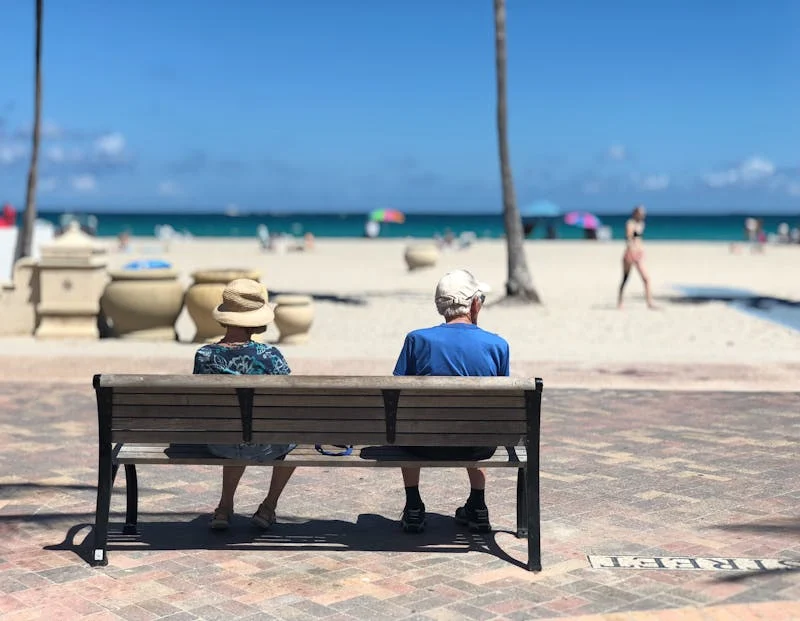
The idea of retirement, once a cornerstone of the American Dream, now seems like an elusive mirage for many. It was a promise fulfilled for the baby boomer generation—a period of leisure and rest after decades of toil. This ideal was born out of the post-World War II economic boom, a time when the middle class thrived, pensions were robust, and Social Security offered a reliable safety net. But as the fabric of the middle class unravels and economic pressures mount, one must ask: is retirement still an option, or is it destined to become a relic of a bygone era?
For most of human history, the notion of retirement was alien. People worked until they were physically unable, relying on extended family for support in old age. Multigenerational households were the norm, where the elderly contributed in ways they could, and the younger generations reciprocated with care and provision. However, the rise of industrialization and urbanization disrupted this structure. The nuclear family replaced the extended one, and societal shifts made it possible—and culturally acceptable—for individuals to spend their later years in leisure. Retirement communities and senior living facilities became symbols of progress, and Social Security, introduced in 1935, further institutionalized this stage of life.
Yet, the conditions that allowed for this golden era of retirement have largely eroded. The middle class, once the backbone of American prosperity, is shrinking under the weight of wage stagnation, rising healthcare costs, and dwindling pensions. Defined benefit plans, which guaranteed a steady income post-retirement, have been largely replaced by defined contribution plans like 401(k)s, shifting the burden of saving and investment risk onto individuals. Many workers, grappling with the immediate demands of student loans, mortgages, and childcare, find it nearly impossible to save adequately for the future.
At the same time, life expectancy has increased, stretching the financial needs of retirees over longer periods. Healthcare costs in old age can be astronomical, and Social Security, though still a lifeline for many, is under strain. The program’s trustees warn of potential shortfalls in funding, raising fears that benefits may be reduced for future generations.
The dissolution of the extended family and multigenerational households further compounds the problem. In the absence of familial support networks, aging persons often find themselves isolated and struggling to maintain independence. The privatization of elder care—nursing homes, assisted living facilities, and home health aides—places additional financial strain on families who may already be stretched thin.
So, are we destined to work ourselves to death? The grim reality is that for many, work may indeed extend into what were once considered retirement years. The gig economy and the rise of remote work have made it possible for older adults to continue earning, but often at the cost of stability and adequate benefits. For some, this is a choice—a way to remain engaged and active—but for many, it is a necessity born of financial insecurity.
Yet, despair need not be the only response to this crisis. KommunityKoin.com offers a unique approach that could provide innovative options for those in their retirement years.
This unique platform operates as a time co-op and time banking system, where “Koins” are used to track and exchange time-based services within a community. Instead of traditional monetary transactions, members can trade Koins by contributing skills or services to their community, such as gardening, tutoring, or caregiving. This model fosters mutual support and social resilience, which can be especially valuable for retirees.
How It Could Benefit Retirees
Supplementing Retirement Needs: For retirees facing financial constraints, KommunityKoin.com provides a non-monetary way to access services. By contributing time and skills, retirees can receive help with tasks like home maintenance or healthcare assistance without dipping into limited savings.
Rebuilding Social Networks: Many retirees face social isolation due to the breakdown of multigenerational households and extended families. KommunityKoin.com emphasizes building “Kommunities” where individuals connect, support one another, and build social capital, addressing the emotional and practical needs of older adults.
Empowering Independence: By offering a platform to share their skills and participate in community life, retirees can maintain a sense of purpose and autonomy, crucial for mental and emotional well-being during later life stages.
Ease of Use: The platform’s “KoinPurse” simplifies time tracking and exchanges, making it user-friendly even for those who might not be tech-savvy. Additionally, it offers educational resources to help users build and manage their communities effectively.
Overall, KommunityKoin.com represents an innovative way to reimagine community support systems, particularly for retirees. It provides a model that combines time co-ops and time banking with community building, helping people achieve a higher quality of life even in financially uncertain times. With proper implementation and community participation, it could be a vital tool for addressing the challenges of retirement in a waning middle-class era.
Ultimately, the question of retirement is not just economic but deeply societal. It forces us to confront our values: how do we care for those who can no longer care for themselves? What do we owe to those who have spent a lifetime contributing to society? The answers will determine not only the fate of retirement but also the measure of our collective humanity. So, let’s work together to make those of retirement age able to enjoy the golden years for which they worked so hard.
Join us in making the world a better place. You’ll be glad that you did. Cheers friends.